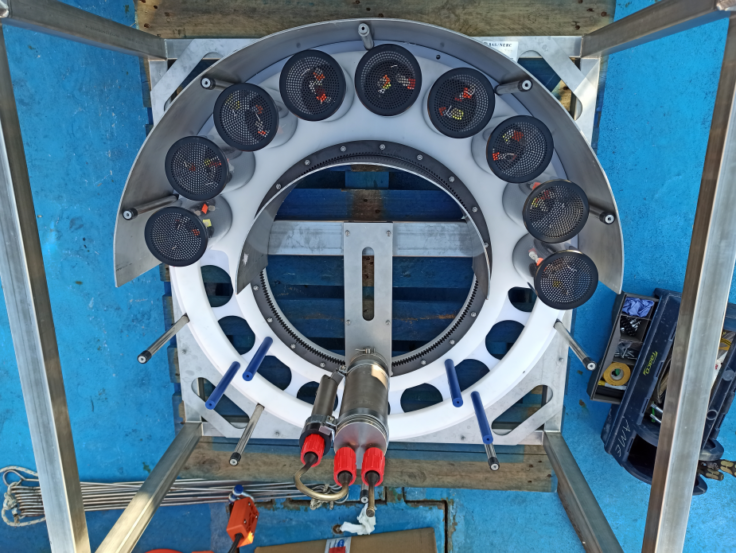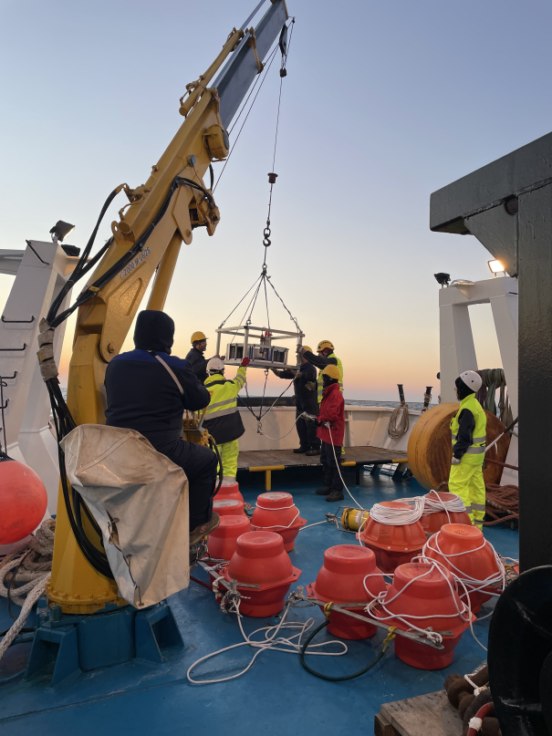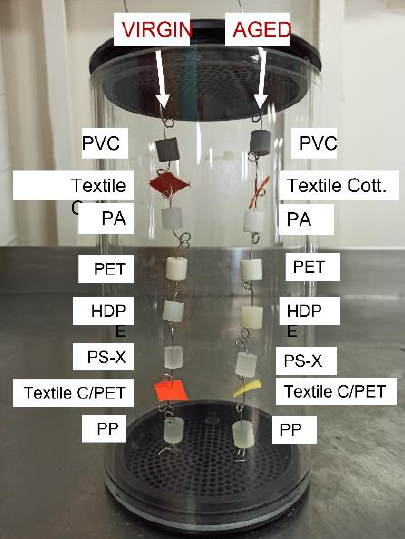New kit enables study of microplastics in the ocean
New equipment designed by British Antarctic Survey is helping scientists to study the impact of microplastics in the ocean. The Ocean Plastic Incubator Chamber (OPIC) exposes various types of plastics to oceanic conditions for predetermined lengths of time to measure weathering rates. Lots of discarded plastic ends up in the ocean, where it remains, so it’s important to understand how plastic may impact the ecosystem.

The CUPIDO team embarked on the Italian research vessel Dallaporta in March 2022 to deploy OPIC in the Adriatic Sea. Although marine plastics are persistent pollutants they do gradually erode through continuous buffeting by currents, exposure to light, and biodegradation by microorganisms. As this weathering alters plastic properties – including colour, buoyancy, and toxicity – it may affect how plastic pervades marine ecosystems.

Laboratory experiments investigating marine plastics typically use clean and pristine plastic samples but, due to weathering, these differ from oceanic samples. The team deployed OPIC to a permanent mooring line at a depth of 250 metres, where it will expose a range of plastic polymers to real-world oceanic conditions. Once OPIC is retrieved next year, the data retrieved will enable the team to estimate the age of the plastics sampled from the ocean and the rate at which weathering alters their properties. From this they can deduce the likely impact on local ecosystems.

This kit was designed for the CUPIDO UKRI FLF funded project which aims to investigate the impact of plastic in the oceans on marine ecosystems.
CUPIDO Principal investigator Clara Manno, says:
“OPIC will provide exciting new insights into how plastic changes when it’s in the ocean over time. This is important because our knowledge of plastic degradation in a natural setting is still very limited due to current technological limitations hampering our understanding of what happens to it (including its breakdown into micro- and nano-plastics).
BAS mechanical engineer Rad Sharma says:
“It was exciting to help the CUPIDO science team to design this novel equipment and contribute to tackling marine plastic pollution.”
The Ocean Plastic Incubator Chamber (OPIC) system to monitor in situ plastic degradation at sea by Elisa Bergami, Bjorg Apeland, Peter Enderlein, Sharma Rad and Clara Manno is published in the journal Environmental Pollution here